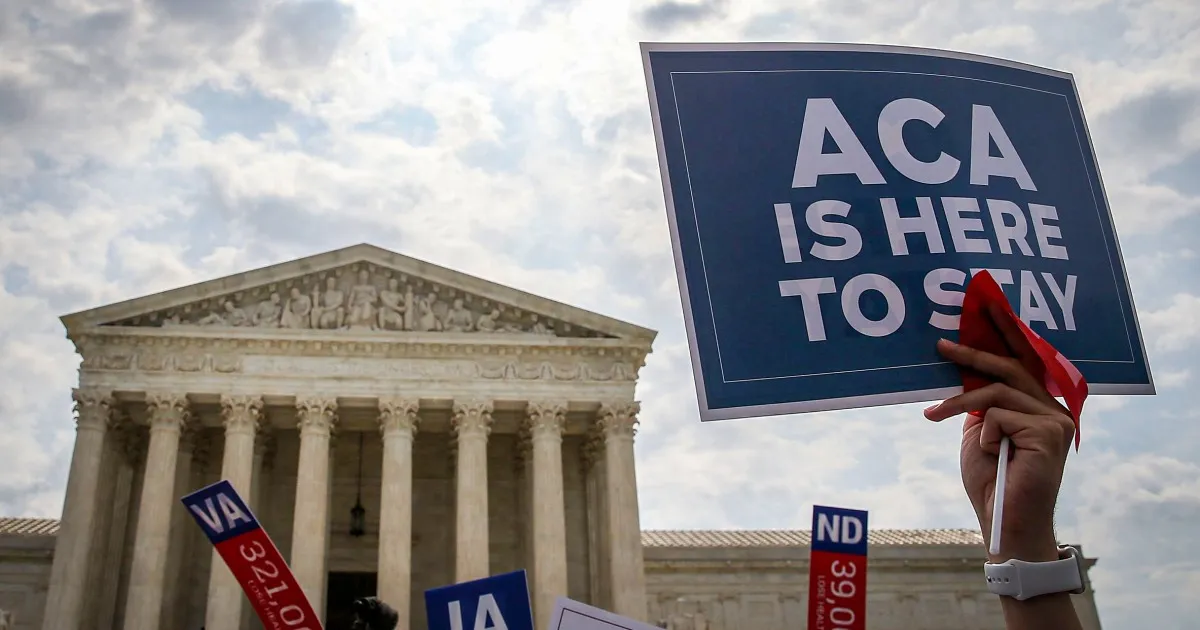
WASHINGTON — On Friday, the Supreme Court denied a challenge to a crucial provision of the Affordable Care Act (ACA) that established a task force responsible for recommending preventive care services that health insurers must offer at no cost to patients. In a split decision of 6-3, the court sided with the Trump administration, which defended the legality of the law, affirming that the members of the task force are appropriately appointed under the Constitution's Appointments Clause.
Justice Brett Kavanaugh, who authored the court's opinion, emphasized that the task force operates under the supervision of the Secretary of Health and Human Services, currently held by Robert F. Kennedy Jr.. This oversight addresses concerns regarding the task force's accountability to the executive branch, Kavanaugh stated. He asserted that the appointment of task force members aligns with constitutional requirements and noted that Kennedy possesses the authority to dismiss these members at any time and to review their recommendations.
The case originated from a lawsuit filed by Christian employers Braidwood Management and Kelley Orthodontics, along with several individuals, who objected on religious grounds to the U.S. Preventive Services Task Force’s endorsement of no-cost coverage for the HIV prevention medication known as pre-exposure prophylaxis (PrEP). The plaintiffs contended that their religious rights were infringed upon by being made complicit in "facilitating homosexual behavior, drug use, and sexual activity outside of marriage between one man and one woman."
However, by the time the case reached the Supreme Court, the core legal issue shifted from the religious concerns raised under the First Amendment to focus exclusively on the tasks and appointments of the members of the task force.
The U.S. Preventive Services Task Force is instrumental in recommending a broad range of preventive services that address critical health concerns, including cancer, diabetes, and heart disease. The challengers argued that the task force's structure was unlawful, claiming that its members were not properly appointed via presidential nomination and Senate confirmation. They asserted that the panel's members were intended to operate independently and not be subject to the control of the Secretary of Health and Human Services, as the government contended.
Comprising 16 members who are outside experts, the task force was created as an independent body appointed by the head of the Agency for Healthcare Research and Quality.
This legal dispute marks yet another chapter in the ongoing challenges to the 2010 health care law, which was the hallmark of then-President Barack Obama's administration and has faced relentless opposition from Republicans in court, who have sought to repeal it. In this instance, the Trump administration took over the case from the Biden administration to defend the contested provision.
The lawsuit was initiated in 2020, leading to a ruling from a federal judge in Texas that deemed the task force's structure unconstitutional, invalidating all of its decisions nationwide. Last year, the New Orleans-based 5th U.S. Circuit Court of Appeals narrowed that ruling somewhat before the Biden administration escalated the case to the Supreme Court.
With a conservative majority of 6-3, the Supreme Court has consistently worked to diminish the powers of federal agencies, making this ruling a significant moment in the ongoing evolution of the Affordable Care Act and its implications for preventive health care services.